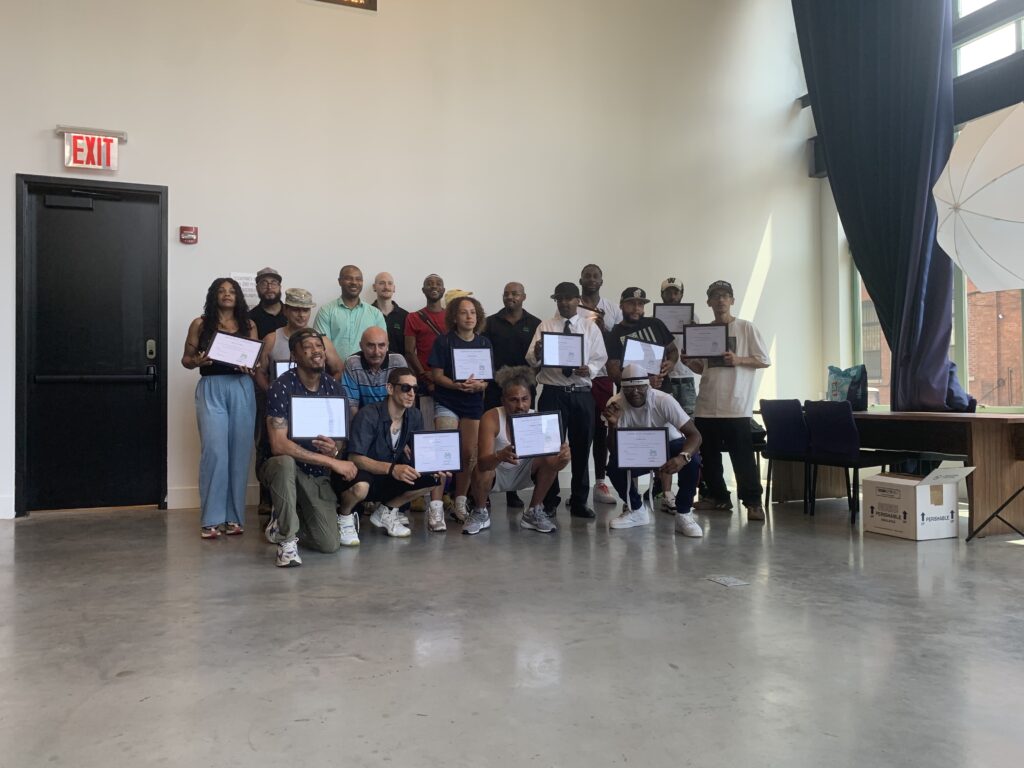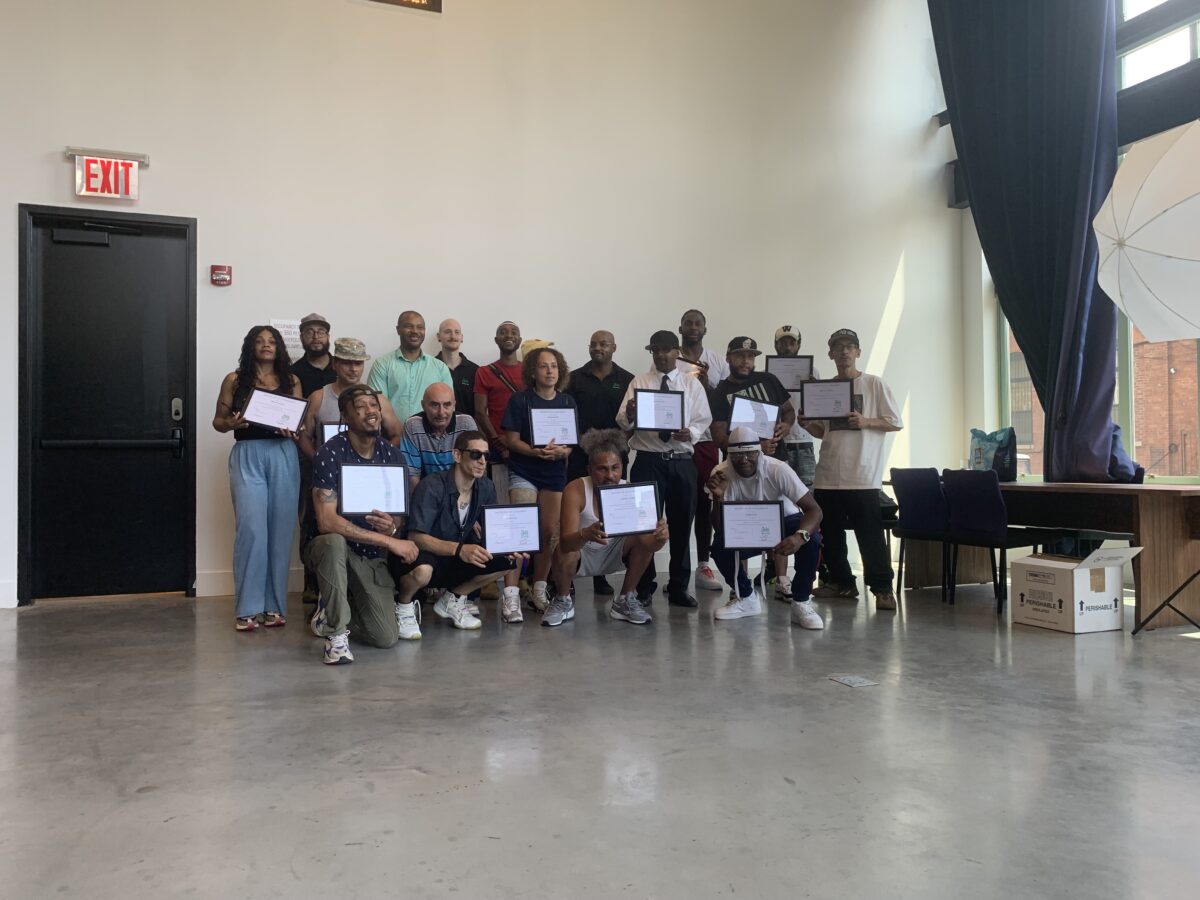Bike Mechanic Training Program Helps Formerly Incarcerated Find Stable Jobs

The graduates of the program during the ceremony.
By Carmo Moniz | news@queensledger.com
A program that helps connect justice-involved people with stable jobs welcomed its most recent graduating class, which will work to maintain the Citi Bike fleet all across New York City, at the Brooklyn Navy Yard on Friday.
The program, called Bike Path, teaches participants how to maintain bikes and become certified bike mechanics in just five weeks, providing them with a direct path to employment afterward.
“This is a lifeline for me, personally,” David Bonet, one of the recent graduates, said. “I’ve been going through a lot of health issues and I’ve been out of work for some time. My daughter passed away in 2019 so I haven’t been fully there, but I’ve been looking to go back to the workforce for some time and this is allowing me to do so.”
The group of 18 graduates began working at their new jobs on Monday, according to Bike New York community outreach manager Jeremy Lockett. Lockett said that graduates spend four days per week learning in the five-week course, and that the positions they are going into are union jobs that pay weekly.
“This can be one of the best workforce development programs for those that are coming back from primarily being formerly incarcerated, and it’s been a success so far,” Lockett said. “It’s an incredible program, and we just want to expand it.”
The Bike Path program came from a 2019 partnership between One Community, an organization working against inequality in Fort Greene and Clinton Hill, and Bike New York, which looks to increase access to biking and ridership across New York City. The two groups created an intensive bike mechanic training program which would help formerly incarcerated people find stable employment.
Justin Vega, another graduate of the program, said he found out about it through a friend of his, and that he enjoyed learning about the importance of different bike parts and getting to know the others in his class.
“I can’t wait to get started on this,” Vega said. “I see where I can do good as much as the next person, just like fixing an apartment, fixing a bike — everybody uses a bike everyday. For me to fix something and be proud of knowing that I fixed that, and somebody is going to ride it safely, that’s my biggest goal.”
More recently, Bike Path has educated participants on how to repair and maintain the Citi Bike fleet in the city. The program partnered with the organization that oversees the maintenance of these bikes — Motivate — to allow participants to work on the Citi Bike maintenance team once they graduate.
Ben Goodman, an instructor in the program, said that this is his favorite group of students in his 15 years of teaching people how to fix bikes.
“This is the first program I’ve ever taught that is directly related to an employment program,” Goodman said. “I’ve done a lot of teaching for high school students and some adult programming, but it’s just a thing they do in the summer, just for the fun of learning. This is great because there’s an end goal that’s more than just the education, its actual opportunities for them. That’s the best.”
In their new jobs, graduates start with pay at $23.25 per hour, and are eligible to work full time and overtime, and they are eligible to become union members after 30 days, Lockett said in an email. Lockett also said that there are roughly 600 bike mechanics employed at Motivate, which is the largest bikeshare company in the United States. He added that there have been around 200 graduates of the program since 2020, and of the 55 that graduated this year, 46 are hired.
The union representing Citi Bike mechanics, Transportation Workers Union Local 100, negotiated the first union contract in the country for bikeshare workers in 2015, securing wage increases and paid parental leave, vacation time and holidays for union members.
Graduate Rasheem Benjamin said he is looking forward to working for Motivate, and also hopes to learn more about the inner workings of electric bikes in the future. He said that most of the graduates in his class will be on the same work shift, so they’ll continue to see each other in their jobs.
“Day by day I’ve learned something new, and by now I feel like I can make an entire bike with my eyes closed,” Benjamin said. “I very much would like to put other people on, try to let them know about this program. In five weeks you can literally learn a skill, something that you can utilize anywhere, not in just New York City. You can go somewhere else and fix your child’s bike. That feeling, to be able to use my hands and craft something, is something great — it’s powerful.”




